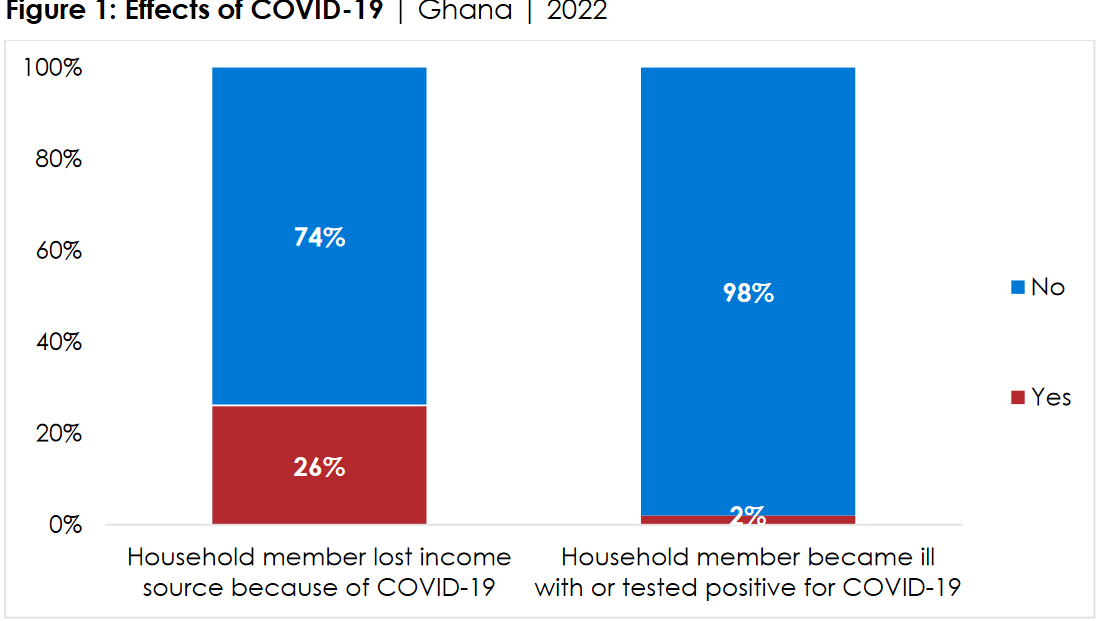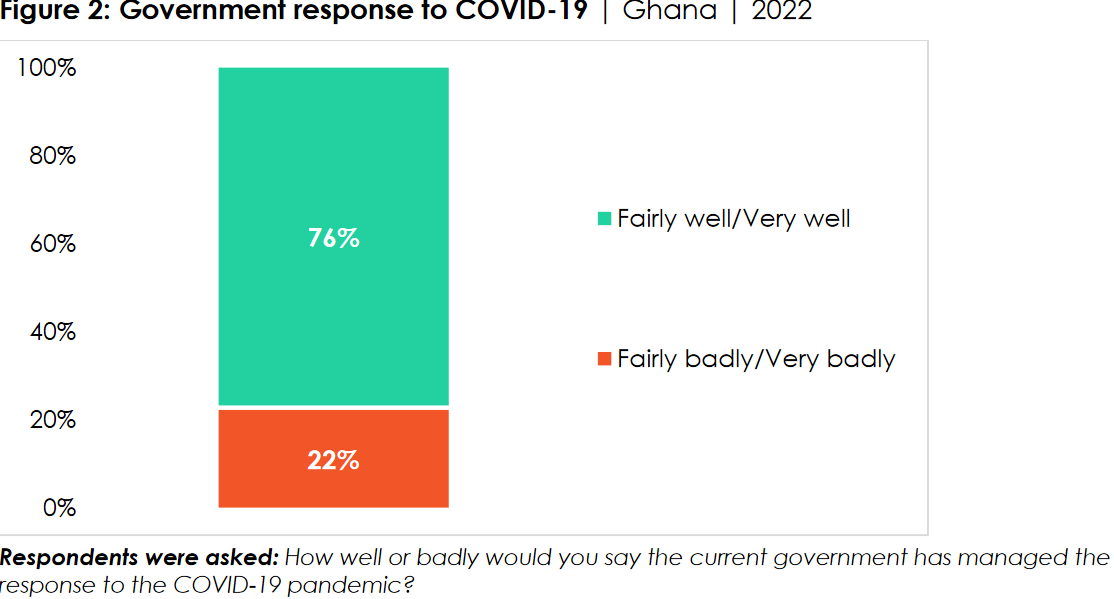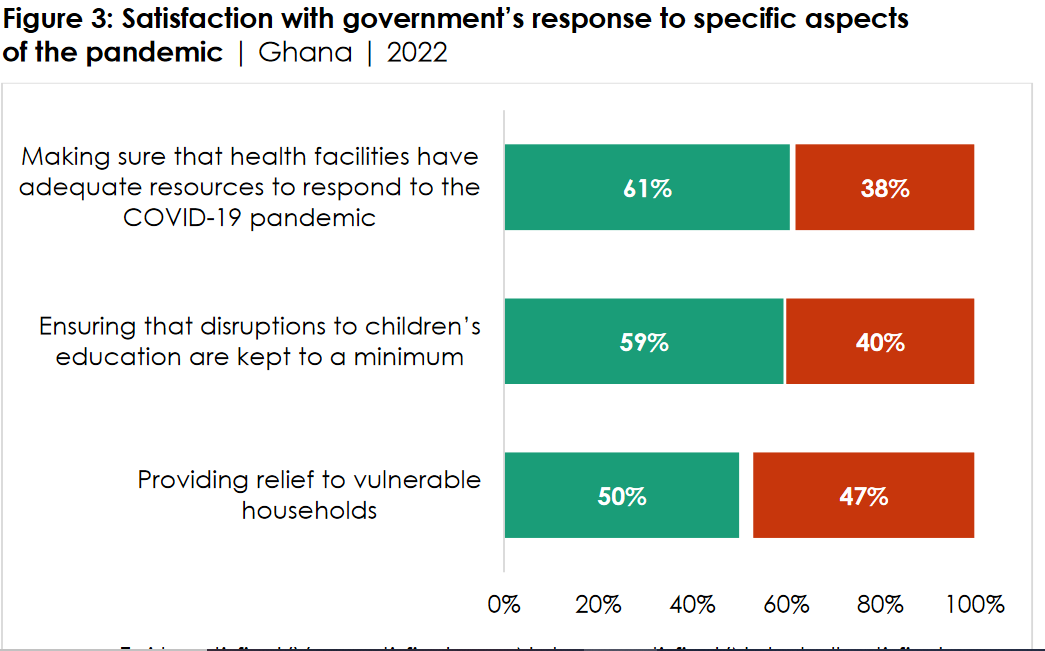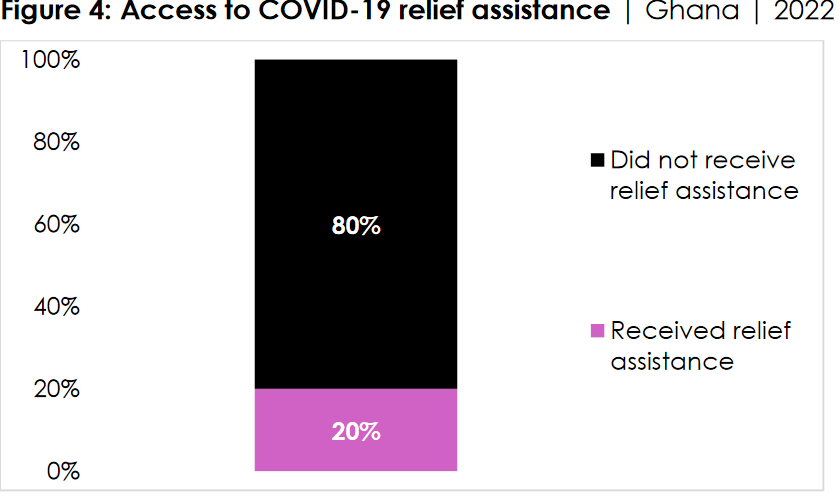A new survey from Afrobarometer has revealed that the majority of Ghanaians believe the government performed well in managing the response to the COVID-19 pandemic, but funds intended for the exercise were lost to corruption.
In the April 2022 survey, a quarter of respondents reported that a member of their household had lost a job or primary source of income due to the pandemic.
Few Ghanaians reported that their household received pandemic-relief assistance from the government, while many said the distribution was unfair.
Key findings
▪ As of April 2022, about a quarter (26%) of Ghanaians said a member of their household had lost a job, business, or primary source of income due to the pandemic, while 2% reported that someone in their household had become ill with COVID-19 or tested positive for the virus.

▪ Overall, three-fourths (76%) of Ghanaians said the government had performed “fairly well” or “very well” in managing the response to the COVID-19 pandemic.
o On specific aspects of the pandemic response, smaller majorities expressed satisfaction with the government’s efforts to ensure that health facilities were adequately resourced (61%) and to minimise disruptions to children’s education (59%).

Only half (50%) praised the government’s provision of relief to vulnerable households (Figure 3).

▪ Only two in 10 Ghanaians (20%) reported that their household had received COVID-19 relief assistance from the government, while 80% said they had not.

▪ Only three in 10 citizens (31%) said that COVID-19 relief was distributed “somewhat fairly” or “very fairly,” while two-thirds (67%) said the distribution was unfair.
▪ And more than seven in 10 (72%) believe that “some” (28%) or “a lot” (44%) of the resources intended for the COVID-19 response were lost to corruption.
See also Over 6,000 KNUST students deferred for delay in payment of fees.
The Afrobarometer team in Ghana, led by the Ghana Center for Democratic Development, interviewed a nationally representative sample of 2,369 adult Ghanaians in April 2022. A sample of this size yields country-level results with a margin of error of +/-2 percentage points.

Comments